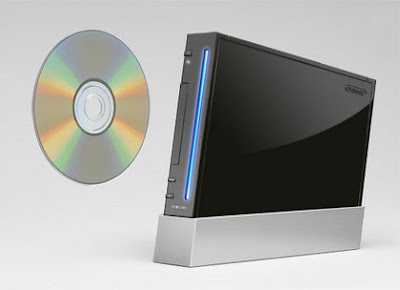
The disagreements and arguments that are taking place amongst a small sect as to whether their leader who passed on close to 13 years ago is still “alive in the physical body and hiding,” or has actually passed on physically -- despite the fact that he had a huge funeral attended by thousands -- just shows the extent to which crowds can experience delusions. It brings to mind Charles Mackay’s famous work: “Memoirs of Extraordinary Popular Delusions and the Madness of Crowds.”
Perhaps the most well-known chapter of the classic book was the story of the tulip mania. For the record, I've chosen to reprint that chapter here –
The Tulipomania
Quis furor ô cives!—Lucan.
3.0
THE TULIP,—SO NAMED, it is said, from a Turkish word, signifying a turban,—was introduced into western Europe about the middle of the sixteenth century. Conrad Gesner, who claims the merit of having brought it into repute,—little dreaming of the extraordinary commotion it was to make in the world,—says that he first saw it in the year 1559, in a garden at Augsburg, belonging to the learned Counsellor Herwart, a man very famous in his day for his collection of rare exotics. The bulbs were sent to this gentleman by a friend at Constantinople, where the flower had long been a favourite. In the course of ten or eleven years after this period, tulips were much sought after by the wealthy, especially in Holland and Germany. Rich people at Amsterdam sent for the bulbs direct to Constantinople, and paid the most extravagant prices for them. The first roots planted in England were brought from Vienna in 1600. Until the year 1634 the tulip annually increased in reputation, until it was deemed a proof of bad taste in any man of fortune to be without a collection of them. Many learned men, including Pompeius de Angelis and the celebrated Lipsius of Leyden, the author of the treatise "De Constantia," were passionately fond of tulips. The rage for possessing them soon caught the middle classes of society, and merchants and shopkeepers, even of moderate means, began to vie with each other in the rarity of these flowers and the preposterous prices they paid for them. A trader at Harlaem was known to pay one-half of his fortune for a single root, not with the design of selling it again at a profit, but to keep in his own conservatory for the admiration of his acquaintance.
3.1
One would suppose that there must have been some great virtue in this flower to have made it so valuable in the eyes of so prudent a people as the Dutch; but it has neither the beauty nor the perfume of the rose—hardly the beauty of the "sweet, sweet-pea;" neither is it as enduring as either. Cowley, it is true, is loud in its praise. He says—
"The tulip next appeared, all over gay,
But wanton, full of pride, and full of play;
The world can't shew a dye but here has place;
Nay, by new mixtures, she can change her face;
Purple and gold are both beneath her care,
The richest needlework she loves to wear;
Her only study is to please the eye,
And to outshine the rest in finery."
This, though not very poetical, is the description of a poet. Beckmann, in his History of Inventions, paints it with more fidelity, and in prose more pleasing than Cowley's poetry. He says, "There are few plants which acquire, through accident, weakness, or disease, so many variegations as the tulip. When uncultivated, and in its natural state, it is almost of one colour, has large leaves, and an extraordinarily long stem. When it has been weakened by cultivation, it becomes more agreeable in the eyes of the florist. The petals are then paler, smaller, and more diversified in hue; and the leaves acquire a softer green colour. Thus this masterpiece of culture, the more beautiful it turns, grows so much the weaker, so that, with the greatest skill and most careful attention, it can scarcely be transplanted, or even kept alive."
3.2
Many persons grow insensibly attached to that which gives them a great deal of trouble, as a mother often loves her sick and ever-ailing child better than her more healthy offspring. Upon the same principle we must account for the unmerited encomia lavished upon these fragile blossoms. In 1634, the rage among the Dutch to possess them was so great that the ordinary industry of the country was neglected, and the population, even to its lowest dregs, embarked in the tulip trade. As the mania increased, prices augmented, until, in the year 1635, many persons were known to invest a fortune of 100,000 florins in the purchase of forty roots. It then became necessary to sell them by their weight in perits, a small weight less than a grain. A tulip of the species called Admiral Liefken, weighing 400 perits, was worth 4400 florins; an Admiral Van der Eyck, weighing 446 perits, was worth 1260 florins; a Childer of 106 perits was worth 1615 florins; a Viceroy of 400 perits, 3000 florins, and, most precious of all, a Semper Augustus, weighing 200 perits, was thought to be very cheap at 5500 florins. The latter was much sought after, and even an inferior bulb might command a price of 2000 florins. It is related that, at one time, early in 1636, there were only two roots of this description to be had in all Holland, and those not of the best. One was in the possession of a dealer in Amsterdam, and the other in Harlaem. So anxious were the speculators to obtain them that one person offered the fee-simple of twelve acres of building ground for the Harlaem tulip. That of Amsterdam was bought for 4600 florins, a new carriage, two grey horses, and a complete suit of harness. Munting, an industrious author of that day, who wrote a folio volume of one thousand pages upon the tulipomania, has preserved the following list of the various articles, and their value, which were delivered for one single root of the rare species called the Viceroy:
florins.
Two lasts of wheat 448
Four lasts of rye 558
Four fat oxen 480
Eight fat swine 240
Twelve fat sheep 120
Two hogsheads of wine 70
Four tuns of beer 32
Two tons of butter 192
One thousand lbs. of cheese 120
A complete bed 100
A suit of clothes 80
A silver drinking cup 60
2500
3.3
People who had been absent from Holland, and whose chance it was to return when this folly was at its maximum, were sometimes led into awkward dilemmas by their ignorance. There is an amusing instance of the kind related in Blainville's Travels. A wealthy merchant, who prided himself not a little on his rare tulips, received upon one occasion a very valuable consignment of merchandise from the Levant. Intelligence of its arrival was brought him by a sailor, who presented himself for that purpose at the counting-house, among bales of goods of every description. The merchant, to reward him for his news, munificently made him a present of a fine red herring for his breakfast. The sailor had, it appears, a great partiality for onions, and seeing a bulb very like an onion lying upon the counter of this liberal trader, and thinking it, no doubt, very much out of its place among silks and velvets, he slily seized an opportunity and slipped it into his pocket, as a relish for his herring. He got clear off with his prize, and proceeded to the quay to eat his breakfast. Hardly was his back turned when the merchant missed his valuable Semper Augustus, worth three thousand florins, or about 280l. sterling. The whole establishment was instantly in an uproar; search was everywhere made for the precious root, but it was not to be found. Great was the merchant's distress of mind. The search was renewed, but again without success. At last some one thought of the sailor.
3.4
The unhappy merchant sprang into the street at the bare suggestion. His alarmed household followed him. The sailor, simple soul! had not thought of concealment. He was found quietly sitting on a coil of ropes, masticating the last morsel of his "onion." Little did he dream that he had been eating a breakfast whose cost might have regaled a whole ship's crew for a twelvemonth; or, as the plundered merchant himself expressed it, "might have sumptuously feasted the Prince of Orange and the whole court of the Stadtholder." Anthony caused pearls to be dissolved in wine to drink the health of Cleopatra; Sir Richard Whittington was as foolishly magnificent in an entertainment to King Henry V; and Sir Thomas Gresham drank a diamond, dissolved in wine, to the health of Queen Elizabeth, when she opened the Royal Exchange; but the breakfast of this roguish Dutchman was as splendid as either. He had an advantage, too, over his wasteful predecessors: their gems did not improve the taste or the wholesomeness of their wine, while his tulip was quite delicious with his red herring. The most unfortunate part of the business for him was, that he remained in prison for some months on a charge of felony preferred against him by the merchant.
3.5
Another story is told of an English traveller, which is scarcely less ludicrous. This gentleman, an amateur botanist, happened to see a tulip-root lying in the conservatory of a wealthy Dutchman. Being ignorant of its quality, he took out his penknife, and peeled off its coats, with the view of making experiments upon it. When it was by this means reduced to half its original size, he cut it into two equal sections, making all the time many learned remarks on the singular appearances of the unknown bulb. Suddenly the owner pounced upon him, and, with fury in his eyes, asked him if he knew what he had been doing? "Peeling a most extraordinary onion," replied the philosopher. "Hundert tausend duyvel!," said the Dutchman; "it's an Admiral Van der Eyck." "Thank you," replied the traveller, taking out his note-book to make a memorandum of the same; "are these admirals common in your country?" "Death and the devil," said the Dutchman, seizing the astonished man of science by the collar; "come before the syndic, and you shall see." In spite of his remonstrances, the traveller was led through the streets, followed by a mob of persons. When brought into the presence of the magistrate, he learned, to his consternation, that the root upon which he had been experimentalising was worth four thousand florins; and, notwithstanding all he could urge in extenuation, he was lodged in prison until he found securities for the payment of this sum.
3.6
The demand for tulips of a rare species increased so much in the year 1636, that regular marts for their sale were established on the Stock Exchange of Amsterdam, in Rotterdam, Harlaem, Leyden, Alkmar, Hoorn, and other towns. Symptoms of gambling now became, for the first time, apparent. The stock-jobbers, ever on the alert for a new speculation, dealt largely in tulips, making use of all the means they so well knew how to employ, to cause fluctuations in prices. At first, as in all these gambling mania, confidence was at its height, and every body gained. The tulip-jobbers speculated in the rise and fall of the tulip stocks, and made large profits by buying when prices fell, and selling out when they rose. Many individuals grew suddenly rich. A golden bait hung temptingly out before the people, and, one after the other, they rushed to the tulip marts, like flies around a honey-pot. Every one imagined that the passion for tulips would last for ever, and that the wealthy from every part of the world would send to Holland, and pay whatever prices were asked for them. The riches of Europe would be concentrated on the shores of the Zuyder Zee, and poverty banished from the favoured clime of Holland. Nobles, citizens, farmers, mechanics, seamen, footmen, maidservants, even chimney-sweeps and old clotheswomen, dabbled in tulips. People of all grades converted their property into cash, and invested it in flowers. Houses and lands were offered for sale at ruinously low prices, or assigned in payment of bargains made at the tulip-mart. Foreigners became smitten with the same frenzy, and money poured into Holland from all directions. The prices of the necessaries of life rose again by degrees: houses and lands, horses and carriages, and luxuries of every sort, rose in value with them, and for some months Holland seemed the very antechamber of Plutus. The operations of the trade became so extensive and so intricate, that it was found necessary to draw up a code of laws for the guidance of the dealers. Notaries and clerks were also appointed, who devoted themselves exclusively to the interests of the trade. The designation of public notary was hardly known in some towns, that of tulip-notary usurping its place. In the smaller towns, where there was no exchange, the principal tavern was usually selected as the "show-place," where high and low traded in tulips, and confirmed their bargains over sumptuous entertainments. These dinners were sometimes attended by two or three hundred persons, and large vases of tulips, in full bloom, were placed at regular intervals upon the tables and sideboards, for their gratification during the repast.
3.7
At last, however, the more prudent began to see that this folly could not last for ever. Rich people no longer bought the flowers to keep them in their gardens, but to sell them again at cent per cent profit. It was seen that somebody must lose fearfully in the end. As this conviction spread, prices fell, and never rose again. Confidence was destroyed, and a universal panic seized upon the dealers. A had agreed to purchase ten Sempers Augustines from B, at four thousand florins each, at six weeks after the signing of the contract. B was ready with the flowers at the appointed time; but the price had fallen to three or four hundred florins, and A refused either to pay the difference or receive the tulips. Defaulters were announced day after day in all the towns of Holland. Hundreds who, a few months previously, had begun to doubt that there was such a thing as poverty in the land, suddenly found themselves the possessors of a few bulbs, which nobody would buy, even though they offered them at one quarter of the sums they had paid for them. The cry of distress resounded everywhere, and each man accused his neighbour. The few who had contrived to enrich themselves hid their wealth from the knowledge of their fellow-citizens, and invested it in the English or other funds. Many who, for a brief season, had emerged from the humbler walks of life, were cast back into their original obscurity. Substantial merchants were reduced almost to beggary, and many a representative of a noble line saw the fortunes of his house ruined beyond redemption.
3.8
When the first alarm subsided, the tulip-holders in the several towns held public meetings to devise what measures were best to be taken to restore public credit. It was generally agreed, that deputies should be sent from all parts to Amsterdam, to consult with the government upon some remedy for the evil. The government at first refused to interfere, but advised the tulip-holders to agree to some plan among themselves. Several meetings were held for this purpose; but no measure could be devised likely to give satisfaction to the deluded people, or repair even a slight portion of the mischief that had been done. The language of complaint and reproach was in every body's mouth, and all the meetings were of the most stormy character. At last, however, after much bickering and ill-will, it was agreed, at Amsterdam, by the assembled deputies, that all contracts made in the height of the mania, or prior to the month of November 1636, should be declared null and void, and that, in those made after that date, purchasers should be freed from their engagements, on paying ten per cent to the vendor. This decision gave no satisfaction. The vendors who had their tulips on hand were, of course, discontented, and those who had pledged themselves to purchase, thought themselves hardly treated. Tulips which had, at one time, been worth six thousand florins, were now to be procured for five hundred; so that the composition of ten per cent was one hundred florins more than the actual value. Actions for breach of contract were threatened in all the courts of the country; but the latter refused to take cognizance of gambling transactions.
3.9
The matter was finally referred to the Provincial Council at the Hague, and it was confidently expected that the wisdom of this body would invent some measure by which credit should be restored. Expectation was on the stretch for its decision, but it never came. The members continued to deliberate week after week, and at last, after thinking about it for three months, declared that they could offer no final decision until they had more information. They advised, however, that, in the mean time, every vendor should, in the presence of witnesses, offer the tulips in natura to the purchaser for the sums agreed upon. If the latter refused to take them, they might be put up for sale by public auction, and the original contractor held responsible for the difference between the actual and the stipulated price. This was exactly the plan recommended by the deputies, and which was already shown to be of no avail. There was no court in Holland which would enforce payment. The question was raised in Amsterdam, but the judges unanimously refused to interfere, on the ground that debts contracted in gambling were no debts in law.
3.10
Thus the matter rested. To find a remedy was beyond the power of the government. Those who were unlucky enough to have had stores of tulips on hand at the time of the sudden reaction were left to bear their ruin as philosophically as they could; those who had made profits were allowed to keep them; but the commerce of the country suffered a severe shock, from which it was many years ere it recovered.
3.11
The example of the Dutch was imitated to some extent in England. In the year 1636 tulips were publicly sold in the Exchange of London, and the jobbers exerted themselves to the utmost to raise them to the fictitious value they had acquired in Amsterdam. In Paris also the jobbers strove to create a tulipomania. In both cities they only partially succeeded. However, the force of example brought the flowers into great favour, and amongst a certain class of people tulips have ever since been prized more highly than any other flowers of the field. The Dutch are still notorious for their partiality to them, and continue to pay higher prices for them than any other people. As the rich Englishman boasts of his fine race-horses or his old pictures, so does the wealthy Dutchman vaunt him of his tulips.
3.12
In England, in our day, strange as it may appear, a tulip will produce more money than an oak. If one could be found, rara in terris, and black as the black swan alluded to by Juvenal, its price would equal that of a dozen acres of standing corn. In Scotland, towards the close of the seventeenth century, the highest price for tulips, according to the authority of a writer in the supplement to the third edition of the Encyclopedia Britannica, was ten guineas. Their value appears to have diminished from that time till the year 1769, when the two most valuable species in England were the Don Quevedo and the Valentinier, the former of which was worth two guineas and the latter two guineas and a half. These prices appear to have been the minimum. In the year 1800, a common price was fifteen guineas for a single bulb. In 1835, so foolish were the fanciers, that a bulb of the species called the Miss Fanny Kemble was sold by public auction in London for seventy-five pounds. Still more remarkable was the price of a tulip in the possession of a gardener in the King's Road, Chelsea;—in his catalogues, it was labelled at two hundred guineas.
























